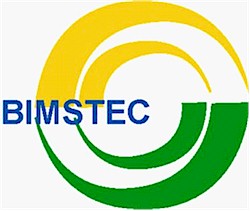EDITORIAL: Reviving BIMSTEC
BIMSTEC must identify few priority areas, otherwise it might end up making lots of commitments but delivering none
Nepal is hosting the fourth summit of the Bay of Bengal Initiative for Multi-Sectoral Technical and Economic Cooperation (BIMSTEC) on August 30 and 31. The summit will be attended by heads of the government or state of all BIMSTEC member countries. BIMSTEC is a grouping of seven countries located in or nearby the Bay of Bengal. They are: Bangladesh, Bhutan, India, Myanmar, Nepal, Sri Lanka and Thailand. It was formed in June, 1997 to spur accelerated economic growth through mutual cooperation in different areas of common interest. But BIMSTEC has not been able to foster regional cooperation so far; and hosting of fourth conference in 21 years of its existence speaks volumes about lack of will to promote the grouping. Despite its disappointing performance, the group appears to be making a revival, as India, the largest economy in the bloc, has shown interest to strengthen it. India is trying to promote BIMSTEC because the regional grouping complements its Act East Policy to engage with Southeast and East Asia and beyond. So chances of BIMSTEC becoming a vibrant regional grouping cannot be ruled out.
An active BIMSTEC will also benefit Nepal as it can work as a bridge to connect the country with booming Southeast Asia. Since Myanmar and Thailand are members of the group, Nepal can use the two countries to penetrate Southeast Asia, which is home to economies like Indonesia, Malaysia, Vietnam, Singapore and the Philippines. But to reap benefit from these economies it must focus on transport connectivity via road, railway and ocean. Nepal has suffered over the years because of lack of or poor quality of transport and logistics infrastructure. This has raised trade and transit cost, making Nepali goods and services expensive abroad. So, as a host nation and incumbent chair of BIMSTEC, Nepal must push for construction of robust transport network in the region to strengthen regional ties. This will not only facilitate trading of goods but trading of services, such as tourism, laying the groundwork for signing of free trade agreement, an agenda which BIMSTEC has been pushing since 2004. Thailand has already prepared a draft concept paper of BIMSTEC Master Plan on Transport Connectivity. The master plan is envisaged to provide an overarching framework for BIMSTEC in enhancing transport connectivity among its member states. The upcoming summit must look for ways to finalise it.
BIMSTEC must identify a few priority areas like this one and regional electricity grid connectivity and work on them properly to promote regional integration. Otherwise, it might end up making lots of commitments but delivering none. BIMSTEC is currently focusing on 14 sectors, including, trade, technology, energy, transport, tourism, fisheries, agriculture, public health, poverty alleviation, counter-terrorism, environment, culture, people-to-people contact and climate change. In the BIMSTEC summit held in 2014, Indian Foreign Minister Salman Khurshid had advised that BIMSTEC focus on five areas: connectivity, economic cooperation, energy, security and people-to-people exchanges. This should be heeded as many areas of cooperation will divert focus, preventing BIMSTEC from advancing integration.
Cut hiked taxes
After receiving much criticism from people of different walks of life over the exorbitant hike in taxes at local and provincial levels some of the municipalities, including Kathmandu Metropolitan City, Hetauda Sub-Metropolitan City and Chandragiri Municipality, have decided to reduce the taxes. The issue of high tax rates was also raised in the federal parliament which has called for the formation of the National Natural Resources and Fiscal Commission.
A number of local governments now has reduced taxes and fees levied on authentication of official papers. These bodies have also waived fees if a service seeker applies for authentication of documents such as birth, marriage and death certificates within 35 days of their happening. Kathmandu Metropolitan City, for instance, has reduced house rent tax by two percentage points to 10 per cent from 12 per cent. Fee for recommendation for marital naturalised citizenship has been cut down drastically from Rs 10,000 to Rs 500 only. These are good moves. The local levels should not impose unnecessary taxes or fees on the public beyond their paying capacity. Other municipalities should also follow suit.






